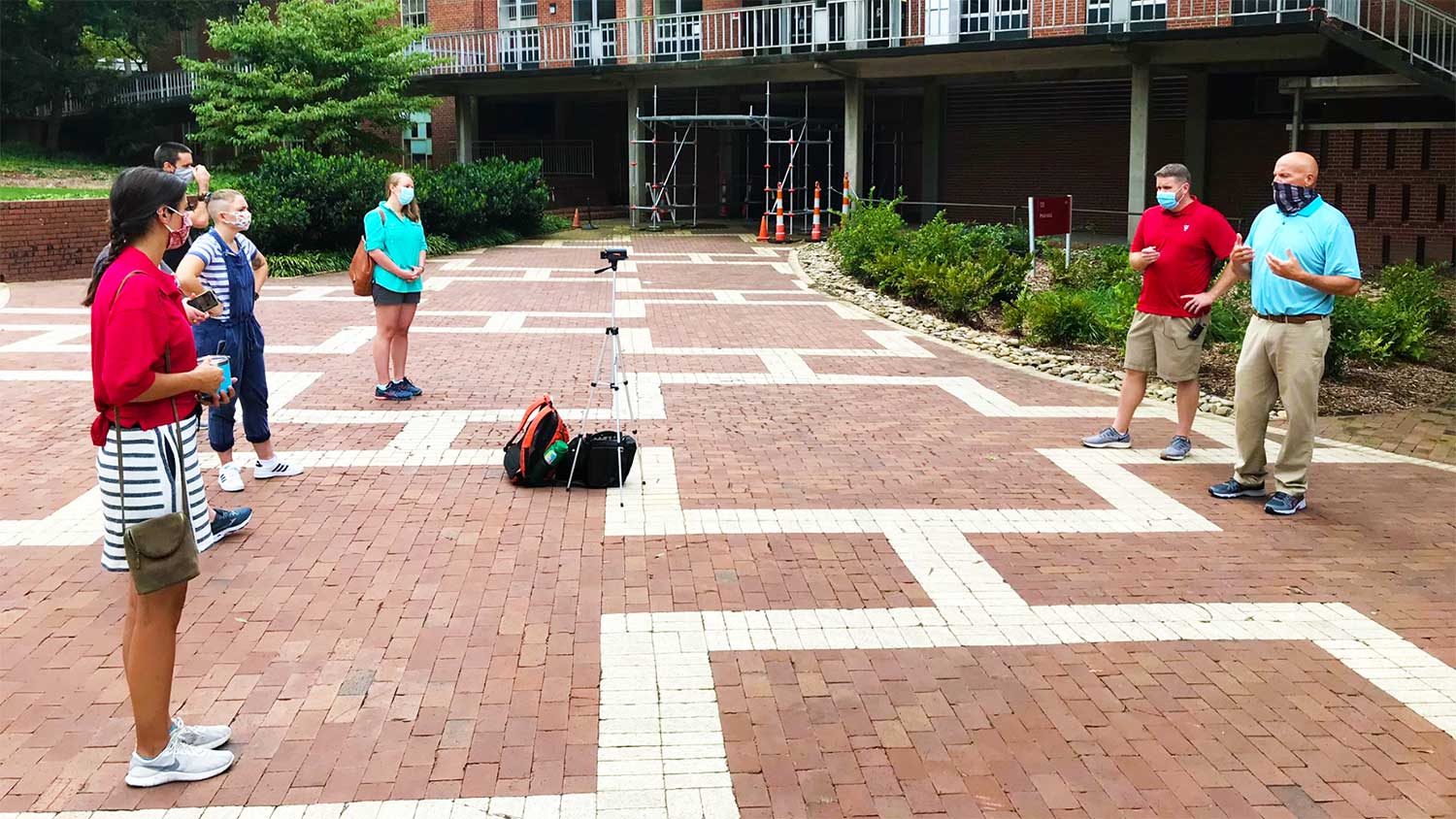Real-World Education Goes Virtual

NC State courses featuring hands-on learning in sustainability have made unique pivots this fall semester to preserve the benefits of real-world experience amid an online teaching environment. Here are a few:
Virtual Sustainability Tours
In ENV 101: Exploring the Environment, campus field trips are a popular way for College of Natural Resources students in the Environmental First Year Program (ENVFY) to see and experience sustainability. Now, those field trips will be virtual tours.
Recently, the program’s instructors and teaching assistants filmed NC State Facilities Division employees explaining stormwater management on the Brickyard and creating a virtual tour. Other components of the course, such as case studies, will also have new online and interactive elements.
“We’re using a combination of synchronous and asynchronous activities to keep students engaged. Each week will be a little different,” said Megan Lupek, ENVFY director.
Virtual Online Teams, Real Impact Projects
In Poole College of Management, graduate-level accounting and business students in MBA 582: Sustainability and Business will work together in small virtual teams on projects with six local purpose-driven companies: Lulu.com, Prota Fiori, 360 Rocks, Young Americans Protest, Ocaquatics Swim School and Orora.
The projects are part of the NC State B Corp Clinic, which has helped more than 50 companies from around the world improve their social and environmental impact.
“MBA 582 is structured to include readings and video to lay the foundation of sustainability in business, conversations with guest speakers to explore sustainability in the real world, and the B Corp Clinic provides students with an opportunity to apply what they’re learning,” said course instructor Jessica Thomas, director of the Poole College Business Sustainability Collaborative.
Building Knowledge, Skills
In ARC 525: Sustainability Over The Life Of A Building, students work in interdisciplinary groups to evaluate the operations and maintenance of a campus facility. This year’s focus building is D.H. Hill Jr. Library, which students needed to tour in-person to provide context for the course. They were able to execute self-guided tours — individually or in their small teams — during the first few weeks of the semester.
“Because we work with a building on campus, we needed to do a building tour to make it real for the students. Patrick Deaton from the Libraries created a self-guided tour for the students that allowed for social distancing,” said course co-instructor Traci Rose Rider, an assistant professor in the College of Design’s School of Architecture. “He made an amazing floor plan diagram with 13 different stops and recorded little narratives for each stop that students could stream from their devices as they walked.”
With that in-person perspective, students now learn online through a mix of lectures, guest speakers and workshops. The online platforms also enable students to continue working in small, interdisciplinary groups while participating in larger workshops. By the semester’s end, student teams will submit their analysis and recommendations for boosting the building’s sustainability practices for operations and maintenance.